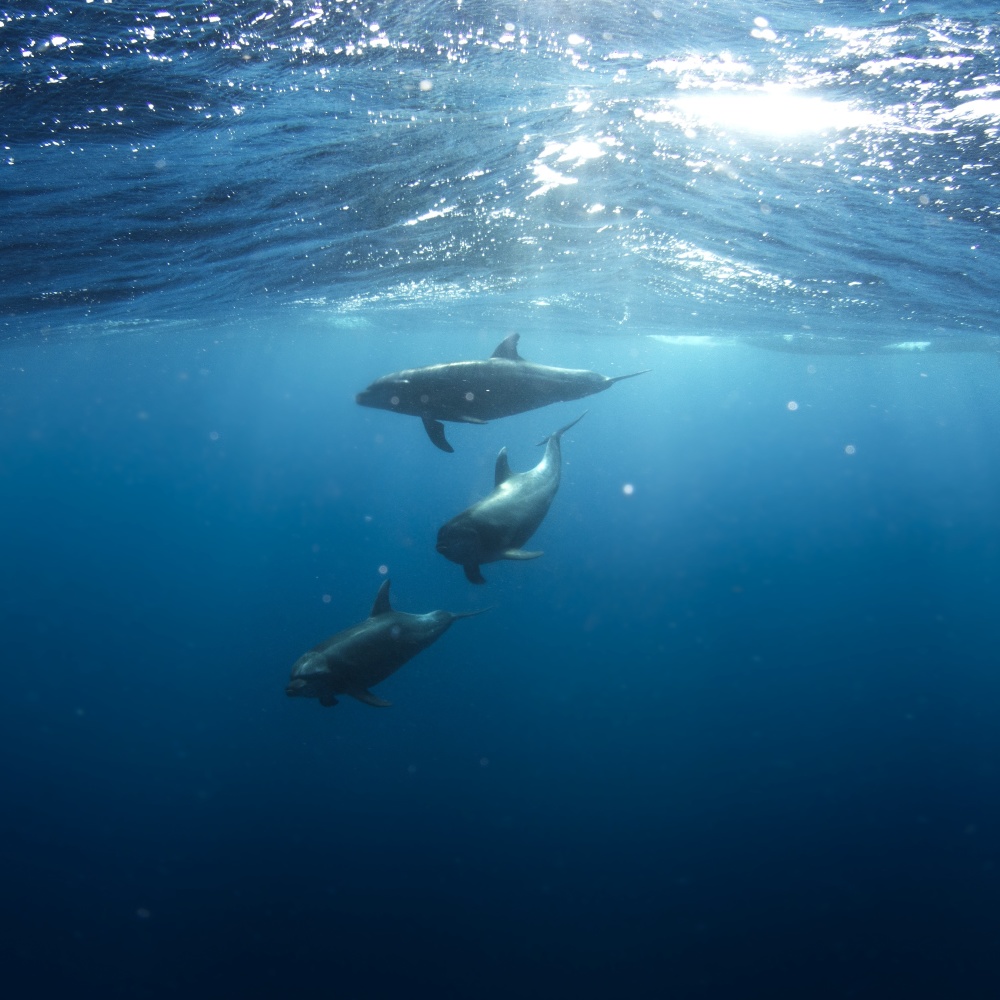Many people visit marine parks and swim with these creatures as part of an 'experience day'- some folks even have it on their bucket list.

They are much happier and healthier in the wild
Even though the dolphins may look happy- what's going on underneath and behind the scenes can tell a very different story. Here are things to consider before you book in.
The psychological effect- Dolphins each have their own personalities, a good sense of self and they can consider what is going to happen in the future.
When cooped up in tanks they have no future to plan for other than the one that is dictated to them.
It's not natural or normal- Like all animals who are taken away from their natural habitat- they suffer enormously when they leave their ocean home. They might endure stress, behavioural abnormalities, illness and premature death in captivity.
Marine parks are prisons- They are effectively the 'watery prison' says Kirsty Henderson from PETA. The animals are held there against their will and confined to the sea equivalent of 'cells'.
There is an alternative- If you want to see a dolphin- take a boat ride out to sea and witness them in the wild- a marine park is not the only way to see and photograph dolphins.
If you pay for a dolphin experience you are contributing to violence- The annual dolphin slaughter in Taiji, Japan, is reportedly subsidised by the animal entertainment industry, so fishers can sell live baby dolphins to marine parks for high prices.
No space- The dolphins are often kept in small pools so they have very little space in which to swim- far removed from the vast expanses of ocean they are used to.
Sea pens are no better- Dolphins are sometimes kept in polluted sea pens as the water quality in them cannot be controlled. Even when pumps are present, the dolphins might have to swim in stagnant, shallow water, which is close to human activity so there are probably more contaminants than there would be in the wild.
Contact with any other marine pollution run off from the park can also lead to illness and sometimes death.
Heat exposure- Water temperature cannot be controlled in sea pens which can force dolphins into shallow water and increased exposure to the sun so the water is of an unusually high temperature.
Noise- There is an increased likelihood of loud sounds in sea pens and tanks; noises can be heard both in and out of the water. This can cause stress and psychological damage to the dolphins who have very sensitive hearing.
No rest- Driven by profits, many marine parks operate for long hours and the animals often get very little rest between swimming with tourists, meaning they are constantly exhausted.
Thankfully, governments around the world are recognising that dolphins, orcas and other cetaceans do not belong in tanks. Chile, Costa Rica and Croatia all have banned the keeping of cetaceans in captivity.
In 2013, India's then Ministry of Environment & Forests banned the capture of dolphins for public entertainment.
Other countries, including Brazil, Luxembourg, Nicaragua and Norway, have very restrictive standards that make it nearly impossible to keep dolphins in captivity. The last dolphinarium in the UK closed more than 20 years ago.
Source: www.awesomeocean.com
For more info go to www.peta.org.uk
Tagged in PETA

